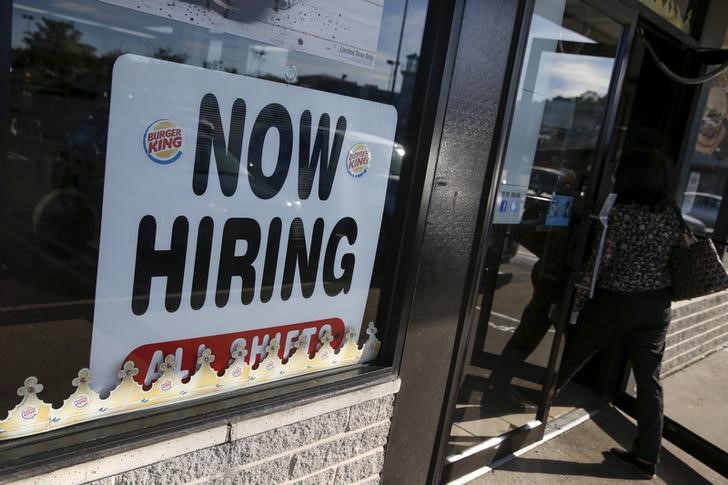* Rise in part-time jobs dents wage growth, raises deflation risk
* Low business investment inflames problem of falling full-time work
* RBA may have more work to do as low pay could hurt demand
* "Gig economy" offers flexibility, but less security for workers
By Swati Pandey
SYDNEY, Sept 12 (Reuters) - Sydney resident Raman Kumar recently lost his job as an electrician after his employer outsourced a big chunk of the work to China to slash costs - and then hired him back as a casual worker.
In June, the 40-year old signed up as a driver for ride sharing app Uber to help make ends meet, becoming part of the so-called "gig economy," where workers have greater flexibility but less security with more part-time or casual jobs.
While the unemployment rate in Australia has been relatively stable, at 5.7 percent in July, there is a historically high underemployment rate - people who want to work more - of 8.5 percent.
Combined, the measures lead to an underutilisation rate of 14.2 percent, much higher than during the global financial crisis and a worrying trend for the Reserve Bank of Australia (RBA).
That spare capacity in the labour market limits the ability of workers to push for pay rises, and feeds through to muted demand and confidence. If this trend persists, the RBA could be forced to lower rates again after already easing twice this year.
Indeed, wages growth is already at record lows while inflation is likely to remain below the central bank's target band of 2-3 percent until 2018. that to turn around you need to see a pick-up in domestic demand," said Gareth Aird, senior economist at Commonwealth Bank.
"We have cash rates down to 1.5 percent and we're still not seeing a pick-up in wages or inflation. We probably need to see a pick-up in investment in order to see full-time employment materially lift."
For policymakers - unable to do much in the face of slow global demand - the low business investment is a particularly worrying phenomenon, especially as the end of the mining boom and a slowdown in major trading partner China leave corporate managers leery about spending on new projects.
Indeed, latest data showed business investment tumbled in the June quarter as miners continued to cut back while spending plans slipped 9 percent. of this would have been lost on the RBA, which highlighted "considerable uncertainty" in the labour market when cutting rates in August. so while more workers in the "sharing" or "gig" economy may sound like good news, it may not be a positive economic trend if they have lost the security of full-time employment.
"I wasn't prepared for this," said Kumar, who lives in Sydney's western suburbs and is saving to pay off his mortgage. "Everyone likes to be in a permanent job. There is more stability."
The rise in the number of part-time employees as a percentage of Australia's workforce is not a new phenomenon, but the pace has quickened in the past year and coincides with a fall in full-time jobs growth - a trend that could put the RBA in a tight spot.
WHERE ARE THE JOBS?
So far in 2016, almost 72,000 net new jobs were added in Australia. But that masks the loss of about 65,000 full-time jobs, with all the growth being part-time, according to data from the Australian Bureau of Statistics (ABS).
Total hours worked in part-time jobs climbed 5.3 percent this year, the data shows. In contrast, full-time hours rose just 0.33 percent, a far cry from a 5 percent-plus pace a decade ago when a mining investment boom was fuelling economic growth.
The slowdown in the labour market coincides with depressed wage growth of 2.1 percent in the year to June, which is feeding through to softer consumer spending.
That is, in part, due to jobs creation in lower-paying sectors such as healthcare and services, and partly to a slump in wage hikes in mining - traditionally a top pay master.
Wage growth in the private sector was an anaemic 1.9 percent in the June quarter compared with 2.5 percent two years ago.
Still Australia's economy expanded at its fastest annual pace in four years last quarter, a remarkable run of 25 years without recession as exports surged. the same, there could be trouble round the corner.
"In terms of the growth in economy, we'll be alright but the question is what happens in two years time - where are the jobs going to come from for Australia?" Andrew Thorburn, CEO of National Bank of Australia NAB.AX , the country's No.1 business lender, said last month.
